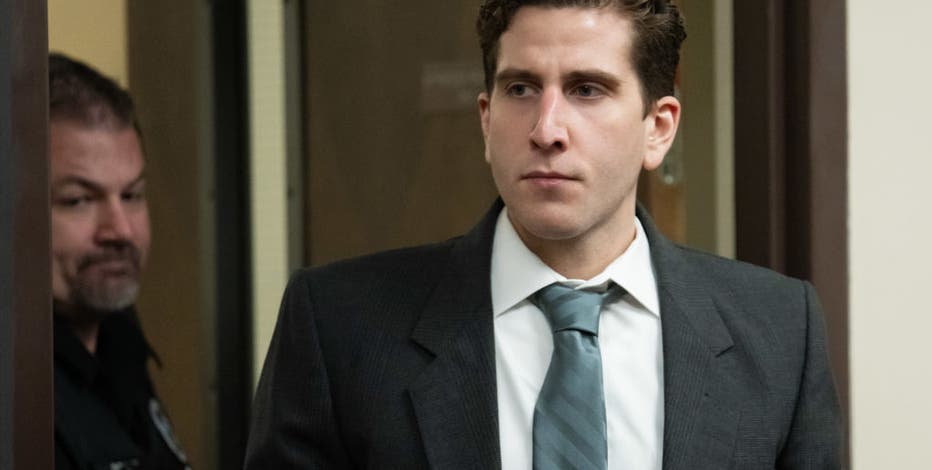News groups sue Idaho prison leader for increased witness access to lethal injection executions
BOISE, Idaho - The Associated Press and two other news organizations are suing Idaho's top prison official for increased access to lethal injection executions, saying the state is unconstitutionally hiding the actual administration of the deadly drugs from public view.
The AP, The Idaho Statesman and East Idaho News filed the lawsuit against Idaho Department of Correction Director Josh Tewalt in Boise's U.S. District Court on Friday.
The news organizations contend the public has a First Amendment right to witness the entire execution process, including when execution team members push the lethal injection medications into the IV lines connected to a condemned person. Idaho's prison officials have kept that part of the execution concealed behind screens or walls in each of the three executions completed in the last half-century.
"At its core, this case involves the press's ability to fulfill its 'significant role in the proper functioning of capital punishment' by providing independent public scrutiny of the State of Idaho's execution process," attorney Wendy Olson wrote in court documents. She noted the 9th U.S. Circuit Court of Appeals has repeatedly found that the public has the right to view executions from start to finish — including in a similar lawsuit brought by AP and other news organizations against Idaho officials in 2012. In that case, the appellate court ordered prison officials to allow media witnesses to watch as the IVs are inserted.

FILE - The execution chamber at the Idaho Maximum Security Institution is shown as Security Institution Warden Randy Blades look on in Boise, Idaho, Oct. 20, 2011. (AP Photo/Jessie L. Bonner, File)
"The Ninth Circuit has not minced words," Olson said, quoting from another 9th Circuit ruling from 2002: "An informed decision by the public is critical in determining whether execution by lethal injection comports with 'the evolving standards of decency which mark the progress of a maturing society.'"
Neither Tewalt nor department spokesperson Sanda Kuzeta-Cerimagic immediately responded to a request for comment from the AP, but Tewalt has previously said the state must maintain confidentiality about the identities of execution team members and about where it obtains execution drugs.
Tewalt and other prison officials have told lawmakers in the past that anything threatening that secrecy could put Idaho's ability to carry out executions at risk, in part because it would be difficult to find qualified volunteers willing to put someone to death.
The news organizations point out in the lawsuit, however, that media witnesses can already see other execution team members, though their identities are concealed by medical masks, head coverings and other devices. The same solution could be used for the execution team members tasked administering the lethal drugs, the news organizations said.
Featured
Judge keeps death penalty a possibility for man charged in killings of 4 Idaho students
A judge has ruled that the death penalty will remain a possibility for a man charged with murder in the stabbing deaths of four University of Idaho students.
Idaho has only attempted four lethal injection executions since the U.S. Supreme Court lifted a moratorium on executions in the 1970s. When Keith Eugene Wells was executed in 1994, IV lines ran from his arm to a screen, behind which execution team members used a device to deliver a cocktail of lethal drugs. In the 2011 execution of Paul Ezra Rhoades and the 2012 execution of Richard Albert Leavitt, the IV lines ran through an opening in the wall of the execution chamber, into another area that was hidden from view.
The same setup was used in February, when the state attempted to execute Thomas Eugene Creech. But that execution was called off after the execution team members were unable to successfully establish an IV line despite trying eight different locations in Creech's arms and legs.
In October, the state announced it would begin using central venous lines — threading a catheter through a large, deep vein until it reaches the condemned person's heart — for lethal injections if attempts to insert standard IV lines fail. Prison officials also remodeled the execution chamber to add a special "execution preparation" room for the central line procedure, and installed closed-circuit cameras so that media witnesses can watch.
The news organizations want a federal judge to order the state to allow media witnesses the same closed-circuit camera access to the "Medical Team Room," where the lethal drug preparation and administration occurs.
"There is no logical reason why the events that will take place in the Medical Team Room should fall outside the scope of the well settled First Amendment right to view an execution in its entirety," Olson wrote.
"Simply put, there is nothing more 'intertwined' with the execution process than the preparation and administration of the very drugs that will effectuate Idaho's most severe punishment," she said.
MORE NEWS FROM FOX 13 SEATTLE
New Ruston, WA law limiting alcohol sales sparks backlash from locals
Police search for woman who robbed bank in Edmonds, WA
18-year-old arrested by SWAT team in Auburn, high-capacity guns seized
Man stabbed while running in North Seattle
Democrats weigh wealth tax as WA projected to be billions in the hole
Mom demands answers from Seattle police following murder of her son
Man arrested in 2013 child sex assault at Kent Dollar Tree, was JBLM soldier
Alleged tire slasher prowling North Beacon Hill in a Porsche
To get the best local news, weather and sports in Seattle for free, sign up for the daily FOX Seattle Newsletter.
Download the free FOX LOCAL app for mobile in the Apple App Store or Google Play Store for live Seattle news, top stories, weather updates and more local and national coverage, plus 24/7 livestreams from across the nation.


